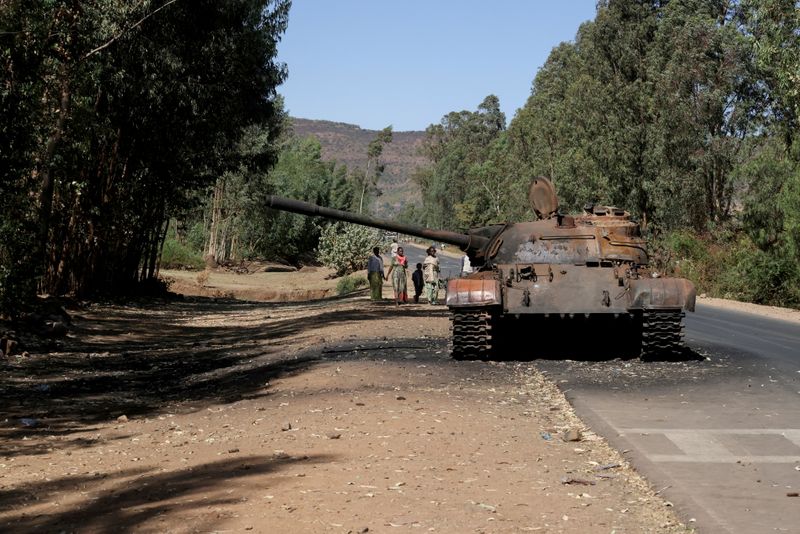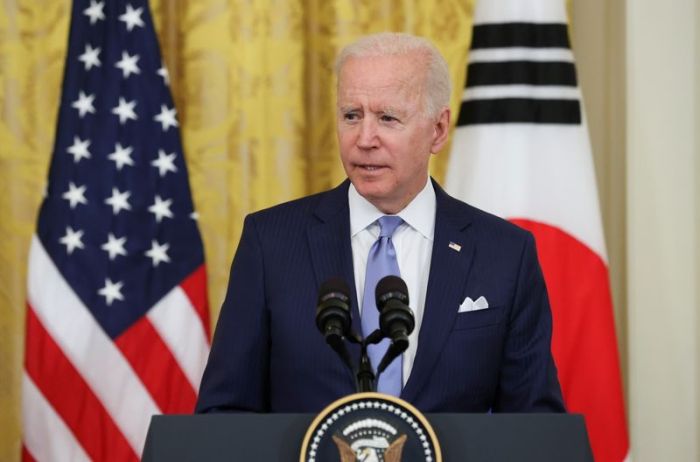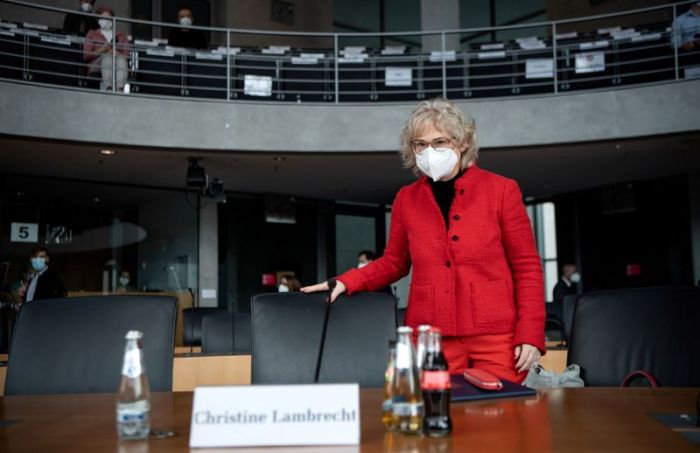By Daphne Psaledakis and Patricia Zengerle
WASHINGTON (Reuters) -A senior U.S. State Department official warned on Thursday that Ethiopia and Eritrea should anticipate further actions from the United States if those stoking the conflict in Ethiopia’s Tigray region fail to reverse course.
Thousands have been killed and about 2 million people forced from their homes in Tigray after conflict erupted between the Tigray People’s Liberation Front and the Ethiopian military in November. Troops from the neighboring Amhara region and the nation of Eritrea entered the war to support the government.
The State Department’s Acting Assistant Secretary for the Bureau of African Affairs Robert Godec told the Senate Foreign Relations Committee that the security situation in Tigray has worsened in recent weeks, adding all armed parties have committed atrocities.
Eritrea’s information minister, Yemane Gebremeskel, and Ethiopian foreign ministry spokesman Dina Mufti did not respond to calls and messages requesting comment.
The Ethiopian government has previously said that the conflict in Tigray is an internal affair; last week it announced that more than 50 soldiers were on trial for rape or killing civilians, although the records are not public. Eritrea has denied any allegations its troops have been involved in atrocities.
Both Ethiopia and Eritrea spent months denying the presence of Eritrean troops in Tigray, before announcing two months ago the Eritreans would pull out. On Monday night, both militaries carried out a joint raid on camps for displaced families in the town of Shire, witnesses said. The incident prompted condemnation from the United Nations over the “arbitrary arrests, beatings and other forms of ill-treatment”.
“Should those stoking the conflict fail to reverse course, Ethiopia and Eritrea should anticipate further actions. It cannot be ‘business-as-usual’ in the face of the violence and atrocities in Tigray,” Godec said.
On Sunday, the United States imposed restrictions on economic and security assistance to Ethiopia over alleged human rights abuses during the conflict in Tigray, and said it will bar current or former Ethiopian or Eritrean government officials it deems responsible for the crisis. Eritrea already faces broad restrictions.
Godec said that the United States is looking at a range of other sanctions, including under the Global Magnitsky Act and others targeted at individuals or institutions.
Godec said that while the ethnic conflict in Tigray is the worst in Ethiopia, it is only one, citing attacks on ethnic Amharans, Gumuz and Oromo, as well as other violence.
“The government’s response of mass arrests, media restrictions, human rights violations, and declining political space is fueling inter-communal rivalry and imperiling the national elections now scheduled for June 21,” Godec said.
(Reporting by Daphne Psaledakis and Patricia ZengerleEditing by Chizu Nomiyama and Frances Kerry)






















